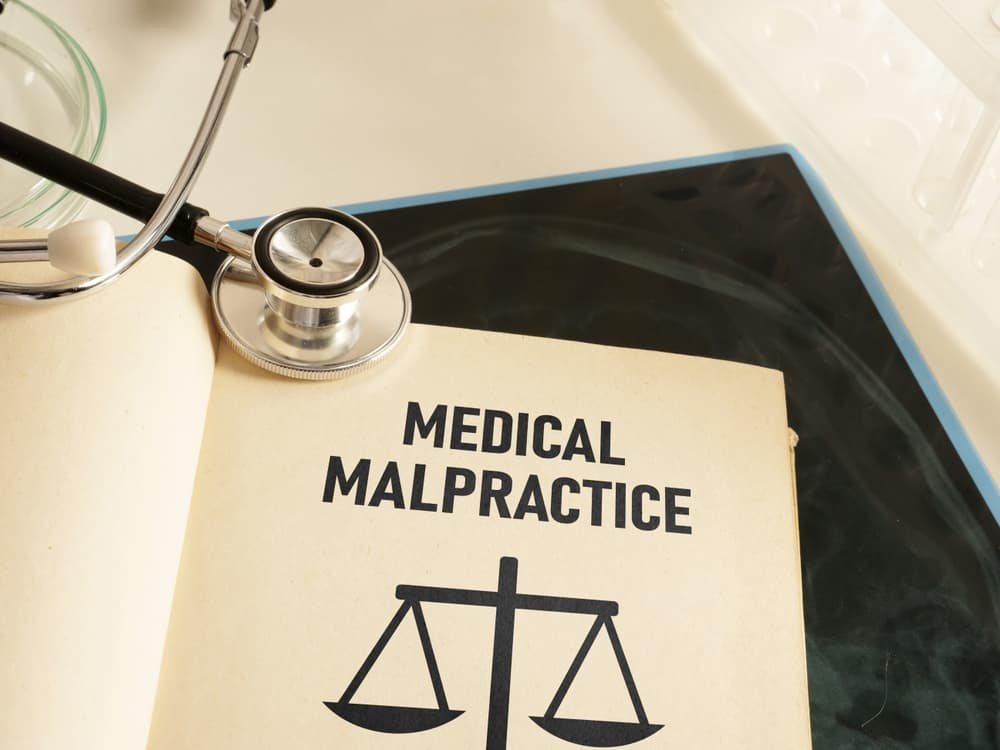You never dreamed that your loved one would suffer a brain injury. What’s more, you never expected to be their caregiver. You could spend your days running errands, helping with day-to-day activities, and perhaps above all else, worrying about your loved one’s future.
Here, you can learn about caring for a loved one after a brain injury. You can also learn about the benefits of partnering with a brain injury lawyer. While you focus on caring for your loved one, they can focus on pursuing damages from the liable party compensation that can help you pay for the care your loved one needs, taking much of the pressure off you.
What Caring for a Brain Injury Patient Entails

Every brain injury patient has different symptoms. Some deal with mild confusion and memory issues. These people can better their lives by having organization systems and reminders about certain tasks. Other traumatic brain injury patients require around-the-clock care, needing help with bathing, feeding themselves, and accomplishing basic tasks.
If you’re currently looking after a loved one with a traumatic brain injury, make sure you:
Accept Emergency Treatment
Some brain injuries are time-sensitive matters. That means prompt treatment can work to alleviate any long-term complications, such as cognitive impairments.
These treatments can minimize brain injury symptoms:
- Bedrest
- Taking certain medications, like blood thinners
- Therapy, including occupational, speech, and physical therapy
Some brain injuries also require surgeries to alleviate intracranial pressure, blood clots, and other complications.
All of that can cost money, either in reduced income from missing work or from provider bills. A brain injury lawyer can fight for the money that a liable party owes your loved one so you can finance this expensive care.
Prevent Falls
When someone suffers a traumatic brain injury, the chances of them suffering a second injury increase. This makes it crucial to prevent falls, which are among the leading causes of traumatic brain injuries.
Preventing falls may include:
- Putting non-slip mats in the shower
- Removing area rugs
- Keeping hallways clear of clutter
- Installing handrails in the bathroom
- Improving the home’s lighting
- Getting exercise and improving coordination
Make Daily Changes
Life is never the same after a traumatic brain injury. This requires making some changes that can prevent complications and additional injuries.
These changes include:
- Avoiding alcohol and drug use
- Wearing seatbelts when in the car
- Paying attention to their surroundings
- Wearing helmets while bicycling
- Refraining from strenuous activity
It’s crucial for brain injury patients to prevent their conditions from worsening. As their caregiver, you must remind your loved one of their limitations and ensure their safety.
Join Support Groups
It’s emotionally taxing having to care for a loved one with a brain injury. Don’t forget to take care of yourself, too. You could find guidance in a support group aimed at the families of brain injury patients. There are many organizations that host in-person and virtual meetings. Here, you can learn to cope with the aftermath of a loved one’s brain injury and preserve your mental health.
Make In-Home Modifications
After suffering a traumatic brain injury, some patients need modifications to their homes or vehicle. For instance, if they now use a wheelchair, they may need lowered countertops and widened doorways. They may also need certain tools while driving to reduce the risk of accidents.
These modifications can quickly get expensive. Yet, you have legal options if your loved one suffered a traumatic brain injury due to negligence. You can partner with an injury lawyer who can assess your losses and pursue damages from the liable party.
What Should I Do After My Loved One Suffers a Brain Injury?
After your loved one suffers a brain injury, you want to promote their health and
preserve your right to damages. Promoting their health involves many of the things listed above, such as undergoing surgery or attending physical therapy. Preserving your right to damages is a different matter.
To recover compensation for your injury-related losses, you should:
Adhere to the Prescribed Treatment Plan
The aftermath of a traumatic brain injury is filled with doctors’ appointments, physical therapy sessions, and other healthcare-related obligations. You shouldn’t ignore any of these responsibilities. As time-consuming as they may seem, these treatments aim to help your loved one reach maximum medical improvement.
If you file a negligence-based claim, you must assert that your loved one did everything possible to better their condition, and still, they’re dealing with serious consequences. By neglecting medical care, the insurer could contest your claim and argue that you made the condition worse.
Document Your Loved One’s Injury
Your loved one may be unable to document the circumstances of their accident and injuries. That leaves the burden of proof on you. You should keep track of your loved one’s doctor’s appointments, physical therapy sessions, and medication regimen.
Keep:
- Correspondence between you and the liable insurer (if you already filed a claim)
- Photos of your loved one’s injury (if they have physical symptoms)
- Receipts from any out-of-pocket expenses
- Information you get from your loved one’s doctor
The more information you have, the more compelling your injury case could be.
Think Twice About Initial Settlement Offers
Insurance companies know that traumatic brain injury cases are high-stakes matters. So, they sometimes reach out to injured claimants immediately, hoping to resolve these cases as quickly (and as cheaply) as possible. These offers seldom account for the full scope of an injured person’s damages.
You have every right to negotiate with the insurer and request compensation that reflects your loved one’s hardships. You may consider partnering with an attorney during this process. They can manage negotiations and advocate for what your family deserves.
What to Know About Traumatic Brain Injuries?
One of the most important things to know about brain injuries is that they affect each person differently. For instance, someone could suffer a concussion and fully recover within a few weeks. Others can suffer the same exact condition and require lifelong care.
Other things to know about brain injuries include:
- Some of the most common things that cause brain injuries include traffic accidents, falls, and assaults.
- According to data reported by the CDC, approximately 22 percent of brain injuries stayed the same and 26 percent of these injuries improved over a five-year period.
- Children and adults suffer brain injuries differently. If a child suffers a brain injury, this could have long-term consequences on their development. Older adults with brain injuries are more likely to pass away prematurely or require constant nursing.
You may already know many of these things firsthand. But here’s something you may not know: you have options as the caregiver of someone with a brain injury both legal and personal.
Resources for Brain Injury Caregivers
If you don’t have a medical background, you may have many questions about caring for your loved one.
Some resources that could benefit you include:
- Information from the Centers for Disease Control and Prevention (CDC). Here, you can get resources that gauge your loved one’s condition and offer insight into what can help them.
- The U.S. Department of Health and Human Services lists some support groups and organizations that focus on helping families of brain injury survivors.
- The Substance Abuse and Mental Health Services Administration (SAMSHA) acknowledges that many survivors of brain injuries are at an increased risk of developing substance abuse problems. So, it offers resources that help families cope with the aftermath of brain injuries.
You may find the greatest resource in partnering with a traumatic brain injury lawyer. They can manage the legal side of things while you focus on caring for your loved one.
Why Partner With a Brain Injury Attorney?

The CDC reports that the lifetime indirect and direct costs of a TBI can come out to $76.5 billion. No one has that kind of money lying around. You deserve to care for your loved one without having to worry about finances. Partnering with a lawyer can help recover the compensation necessary to give your loved one the best quality of life.
Some benefits of seeking legal help include:
Recovering Compensation for Your Losses
Traumatic brain injuries cause more than medical bills; they can also generate other losses, too.
A lawyer can determine the liable party and seek financial recovery for your hardships, such as:
- Healthcare expenses. A traumatic brain injury patient may require intensive medical care for the rest of their life. They may require ongoing therapy, surgeries, and hospital stays. Many states do not cap how much you can recover in medical bills through a claim or lawsuit.
- Lost income. Lost income doesn’t just account for your loved one’s missed time from work; it can account for yours, too. A settlement or court award could offer financial recovery for lost income, tips, bonuses, commissions, freelance contracts, and performances.
- Loss of future earning capacity. A traumatic brain injury can affect your loved one’s cognitive processing, preventing them from continuing in their current line of work. You may have to reduce the number of hours you work to care for your loved one full-time. A lawyer can include these losses in your claim or lawsuit’s value.
- The cost of hiring an in-home caretaker. You shouldn’t have to give up your hopes and ambitions after your loved one suffers a serious injury. You can hire a caretaker to help them while you focus on other things. Compensation could account for hiring in-home help.
- Out-of-pocket losses. Modifying your family’s home could cost thousands of dollars. You may also have to pay for assistive devices and other expenses out of pocket. Each of those losses is recoverable.
- Wrongful death-related expenses. The CDC reports that 22 percent of traumatic brain injuries result in death. If you lost a loved one, compensation can’t account for your grief. However, it could account for funeral and burial costs, along with other related damages.
- Non-economic damages. You can recover damages that go beyond your financial losses. You can also recover damages that reflect your and your loved one’s pain and suffering. Examples of compensable non-economic damages include scarring, disability, and disfigurement.
Loss of enjoyment of life, loss of consortium, and other damages could be available in your case. A lawyer can calculate and pursue these damages while you focus on your loved one’s health.
Identifying the Liable Party
Determining the liable party requires your lawyer to determine the at-fault party.
The at-fault party in your loved one’s brain injury case could include:
- A motorist, if they were hurt in a traffic accident
- A property owner, if they were hurt in a premises liability incident
- A dog’s owner, if your loved one suffered harm in an animal attack
- A healthcare provider, if your loved one suffered medical malpractice
The liable party is generally an insurance provider, but not always. A personal injury lawyer can sort out these issues for you.
Managing the Claims Process From Start to Finish
You have enough on your plate as your loved one’s caretaker. You don’t have time to manage a complicated legal case on your own, especially if there are issues regarding fault, liability, and your damages’ cost.
When you partner with a lawyer, they can:
- Investigate your loved one’s accident. A lawyer is more than a legal advocate; they also double as an investigator. A lawyer can review videos of the accident, photos of your loved one’s injuries, and other information to learn about what happened. The findings of their investigation can yield important information regarding your case.
- Send your demand letter. Your demand letter kicks off the insurance claims process. A lawyer can draft and send this letter to you. This letter outlines the cause of your loved one’s condition, the extent of their condition, and the amount of compensation you’re requesting.
- Negotiate a settlement. The insurer may get your demand letter and then present a counteroffer. Here, your lawyer can negotiate until they reach a fair settlement agreement. As noted, they intend to seek damages that account for your past, present, and future losses.
- File a lawsuit. If the insurer refuses to offer a settlement, your lawyer can file a lawsuit against the at-fault party. This involves complying with the state’s statute of limitations, which outlines how long you have to file a lawsuit.
A brain injury attorney can answer your questions, keep you updated, and advocate for what you need. You deserve to focus on your loved one’s well-being. You can connect with a brain injury law firm to learn about your options and the next steps for moving forward.







